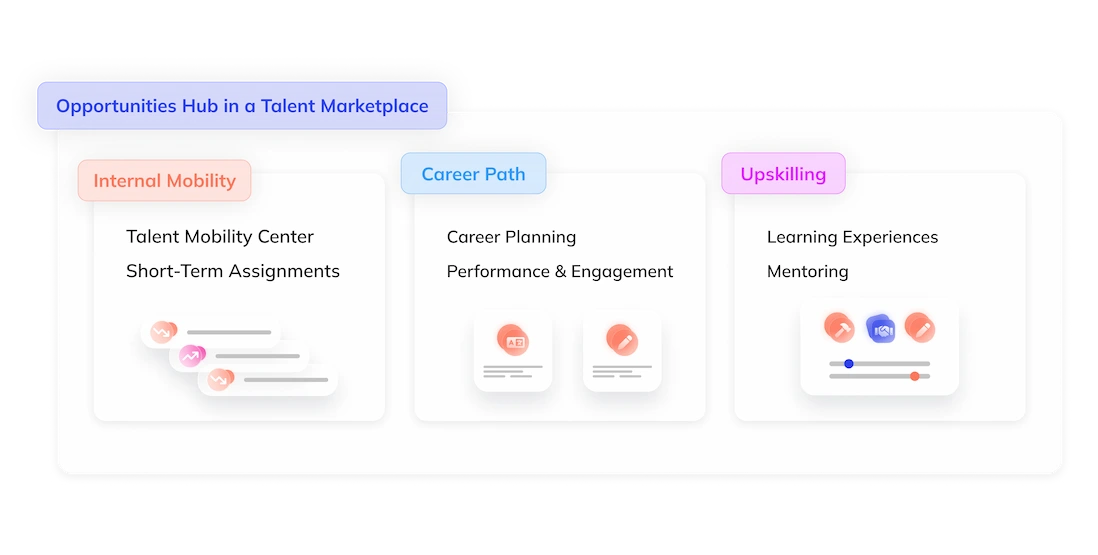“One is not born a manager but becomes one”, managerial skills are acquired over time. Today, 69% of employees prefer to be managed than to evolve in a management role(OpinionWay figures). But where does this dislike for management come from? Navigating the turbulent waters of modern management is a challenge that we examine in this article. Isn’t the crisis in management also the crisis in coaching to acquire the skills of a multifaceted role?
The Current Managerial Context
In today’s ever-changing economy, managers are faced with a multitude of challenges that disrupt traditional management models, forcing them to adapt and support new behaviors among their employees. From technological disruption to changing team expectations, the pressures on managers have never been greater. As proof, the BCG and Ipsos study shows that only 32% of French managers still see more advantages than disadvantages in their role.
In this article, we will explore the key challenges leaders face in today's economy and provide practical advice for overcoming them.
The new challenges of managers
Management style was hardly questioned until the 2000s. Since then, the emergence of a talent shortage and the end of job stability have destabilized the tacit contract between the company and its human resources: new postures are needed.
In addition to excelling in their own operational role and communicating the company’s strategic orientations, managers face a new complexity : that of providing support for new ways of working, leading multicultural and multigenerational teams, and developing behaviors that are ready to embrace the company’s digital and responsible transformations. This necessary adaptation of managers to a more horizontal role was the subject of a Webinar that we suggest you watch :
The challenges of changing work patterns
Combining employee buy-in and business performance is contributing to many changes in the quest for optimal work organizations. Large companies have adopted a management style initiated by start-ups on two main aspects of daily life:
- Project management has been enriched by the notion of agility since 1991 by James Martin, and it really developed from 2001 thanks to the proximity of start-ups to their clients. This way of looking at project management has spread to companies such as Société Générale, Axa, Air France KLM, Airbus, Engie and Michelin. Agility has become “Safe” Scaled Agile Framework, it modifies the relationship to time and requires managers to be closer to their customers.
- The team orientation model has also become more participative, driven by the morning “catch-ups” born from the distancing of the Covid-19 on the one hand, but not only. These ceremonies are central to the Scrum methods, called daily scrum, these meetings allow everyone to express their difficulties in a collaborative approach.
Vertical or “top-down” management is still present in some companies for which this autocratic leadership style works, the participative approach is more in line with current business expectations.
What are the elements in favor of a participatory team management model?
There are 4 arguments in favor of participative team management:
- Valuing collaborative dynamics and collective intelligence
- Promote the flow of information in a context of constant change
- Build clear collective performance objectives that are accepted by all
- Honouring managerial exemplarity, which is often the source of team cohesion
Managerial challenges to personalize their approach
Companies place the responsibility for employee engagement on managers. Gallup was the first to declare that 70% of engagement factors rest on the shoulders of managers: their management style, their adherence to the company strategy, but above all their ability to set an example and to personalize their approach to each individual are now emphasized.
This pressure is both justified and often excessive, since managers are themselves dependent on decisions in which they have not participated and which they do not necessarily share. Finally, it also depends on a corporate culture that may or may not favor internal opportunities. Let us nevertheless examine what it can influence.
How to personalize the support offered to employees?
Personalizing support for employees is based on a specific definition of objectives that require recognition of achievements. Then, adapting one's communication style seems to be a given. Thinking about an offer of opportunities adapted to each person's skills requires knowledge of talents, which HR tools can provide.
- Set specific goals: Managers help their employees set individual goals for their work. By understanding the aspirations and needs of each employee, the manager can ensure that the goals are realistic, relevant and motivating.
–> Read our article on the individualization of performance objectives.
- Adapting communication styles : Managers adapt their communication to the personality of each employee. Some employees prefer clear direction, while others need more freedom to work effectively.
–> Read our article on adapting your communication to your interlocutor.
- Acknowledge achievements : This acknowledgement requires regular feedback. It can be conveyed informally, such as a compliment or an e-mail, or more formally, such as a reward or a promotion. It has enormous power, especially when it comes to asking for improvements in certain aspects of the job.
–> Read our article on the power of continuous feedback.
- Offer development opportunities : managers should not confuse “opportunity” with “promotion”, as an existing talent does not necessarily have the same conception as his or her manager of what he or she considers a career option. The need to learn, which is common to employees with a high level of potential, can be met through training, mentoring, specific projects or special assignments to help them develop their skills. The key is to contribute to the creation of unique career paths. We develop the levers to achieve this in our “Individualizing Career Paths” page.
In addition, hybrid work, shortages of skills and the increasing use of outsourcing also require managers to work alongside multicultural and multigenerational teams. This brings with it language barriers, cultural differences and different work schedules that must be taken into account to ensure that their staff works effectively together.
The ambition to embrace Green Management
Corporate Social Responsibility is an expression that has many implications for organizations and their managers. As a concrete sign of its impact, every company with more than 500 employees must now include the declaration of all direct and indirect carbon emissions in their regulatory carbon footprint, which has been mandatory since January 1, 2023(BEGES decree).
Reducing the carbon footprint of companies represents both a source of savings in the mobility of employees, in the choice of subcontractors and now in the race for tenders.
What is Green management?
Green Management is a business management model in which everyone is encouraged to adopt responsible and sustainable behavior. It is the concrete implementation of the company’s CSR values and commitments in everyday life.
What are the impacts of Green Management for team leaders?
- Be authentic. The diffusion of different behaviors must be done in an authentic way to avoid the disastrous effects of “green washing”: managers must be convinced of the benefits of this change.
- Co-create new habits. The manager is the vector of the implementation of this new governance, they must therefore explain the environmental and social consequences of the current practices and mobilize their teams towards a jointly constructed objective.
- Leading by example. According to Ben Horowitz, the behavior of leaders has a major influence on the formation of corporate culture. By mimicry, employees adopt both good and bad habits, so Green Management goes beyond the ecological sphere to extend to benevolence, well-being, reconciling QWL and digital uses and, ultimately, the involvement of employees in the values they seek within their company.
Expected capabilties from managers
Choosing a manager for a position is historically based on outstanding performance and adherence to internal practices, but are these skills the ones that will make him a good team leader?
Management is considered a promotion in France, whereas it is above all a skill. Julia de Funès.
The perception of a good manager is evolving and it is now expected that he/she can develop and create a team dynamic in a climate of trust. We also see the notion of managerial courage appearing in HRD speeches, i.e. the ability to make decisions, to say no, whereas managers tend to sin by an irrepressible need to be appreciated.
The manager is also called upon to be evaluated head-on on his skills, his managerial style by his own employees. This questioning is complicated.
We develop the critical skills of this function with the article “The Top 5 of the managerial skills “.
What new approaches to HR’s support?
The context is clear: a gap is growing between the perception of managers who think they are doing their job well (at 97%) and what employees think, who, at 48%, think they have no impact on their work. How can HR teams concretely help them?
Consider the posture of the “Manager Coach
Developed in the 1970s by Robert Greenleaf under the term “servant leadership“, the manager-coach reverses the traditional managerial authority paradigm and places the priority of the manager on the service provided to his or her internal clients, i.e. ahead of both the company’s objectives and his or her own personal objectives. Focusing his attention and energy on his collaborators means developing their autonomy, their skills, so that they themselves are then able to provide the same service to their own work environment.
What is a manager coach?
A manager-coach uses coaching techniques to carry out his or her supervisory role: active listening, questioning, reformulation and reframing.
The HR team can help this critical function define which management style is best for the company. Our purpose is not to say that the manager-coach is necessarily the best model, but to highlight the improved performance, creativity and problem-solving ability that various studies show with this management approach.
HR teams are also undergoing a profound change in their management practices. Among the emerging expertises, which we detail in our page “the evolutions of HR management“, is the digital tooling dimension which is a new opportunity to collaborate with users and adapt to new collaborative methods.
Develop the communication skills of leaders
I recently asked an HR manager what reasons mangers have for seeking her help. Her answer made me smile: “they come to me when they have to deal with a conflict situation, communicate something perceived as negative”.
The preoccupation with being appreciated by their teams distracts them from their essential role of helping their teams progress, regardless of the circumstances, whether difficult or serene.
The second area for improvement is the manager’s ability to channel information, transmit urgent matters and key issues to meet employees’ expectations of transparency.
To support leaders, HR teams are, in turn, in a coaching position. The use of targeted coaching services for top management has sometimes distracted HR from its essential role of career support. The current period and the questions shared by employees, managers and HR professionals themselves make self-knowledge a cross-cutting quest for all these protagonists .
Coaching focused on communication skills is all the more relevant because it focuses on action and not on results. At a time when performance and deadlines for achieving objectives are shrinking, it offers a more sustainable vision of the manager’s contribution to his team.
Involve managers in HR decision-making processes
One of the recurring challenges for managers is to clarify the boundaries between the two functions: local management and HR Partner.
With their understanding of the operational challenges facing their team within the organization, managers are naturally in the best position to evaluate skills and establish the strategy to align them with the objectives. For its part, the HR function, which has many priorities, manages the regulatory and administrative aspects and supervises HR initiatives by matching management’s wishes with management’s needs.
Also, the managerial logic of seizing opportunities can sometimes be slowed down by the risk and cost management of the HR function. The good collaboration between these 2 actors is therefore based on 2 simultaneous movements:
- For managers: understanding budgetary constraints for greater financial autonomy, real-time integration of changes in strategic orientations. Our page on strengthening managerial leadership can give you additional food for thought.
- For HR : the amplification of coaching and the sharing of good practices. But also the will to evolve towards an approach that places skills as a priority in organizational design. Read our article on the skills organization to learn more.
In Conclusion
The managerial crisis illustrated by the low figures is that of a role in full transformation. Depending on the company’s culture, the manager will have to take on the role of expert trainer, project manager, internal coach and know how to constantly renew them. The expert trainer, who was once the majority, is gradually disappearing due to the rapid obsolescence of skills. They now ensure the acquisition of the necessary expertise by drawing on individual contributors, external contributors, and certification programs acquired over the long term with HR teams. Most often, therefore, the dimensions of project leadership and collective intelligence remain as vectors for achieving organizational ambitions.








